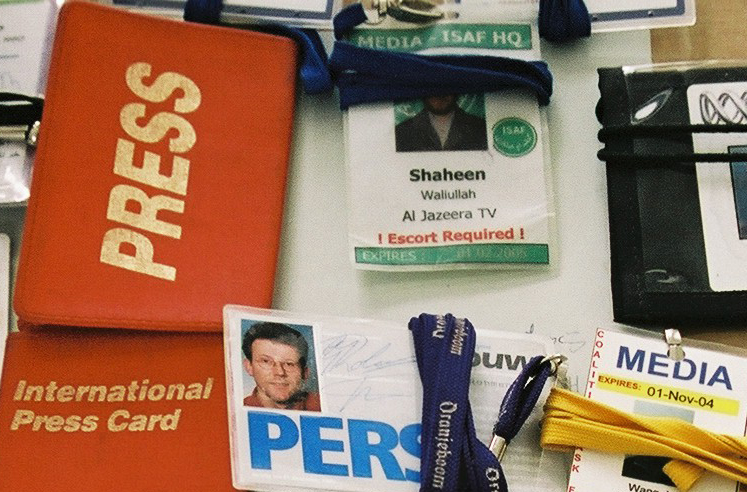Bio

I am doing my activities because reporting or film directing alone is not enough in the light of the global challenges we are facing at the beginning of this 21st century. / Ich mache die Dinge, die ich tue, weil Schreiben oder Filmemachen alleine den globalen Herausforderungen des
21. Jahrhunderts nicht mehr gewachsen sind.
ENGLISH / DEUTSCH
Martin Gerner (*1966, Den Helder/Netherlands) is an Award winning film director of documentary feature films, a journalist, reporter and correspondent from war and conflict zones around the world and photo-journalist. Working in the Middle East and Central Asia, he is also a cultural practitioner and curator in the Western-Islamic and inter-cultural context.
He grew up in Holland, Germany and France. He has studied History, Political Science, International and European Law in Berlin, Bonn and Paris/Sciences Po, holding diploma from both countries, Germany and France.
Martin Gerner has spent more than a decade in Afghanistan working for the built-up of independent Afghan media and helping reshape Afghan journalism, filmmaking and theater through independent projects. A senior editor and former presenter with the popular radio morning show Informationen am Morgen on Deutschlandfunk, Germany’s leading radio program with BBC quality standards, he is currently a freelance correspondent for the German ARD, the Union of National Broadcasters, and for national print media.
His documentary feature film Generation Kunduz has won many Awards worldwide as outstanding German documentary (watch trailer here). The film is one of a few shot unembeded in the war-torn North of Afghanistan, where Taliban recently recaptured the city for a short interval. His recent movie The World’s Smallest Army focuses on migration to Germany and the hardships of refugees in Europe, pinpointing stereotyped narratives in the Western war on terror. (watch trailer here)
As a curator, he has initiated and managed a number of international film festivals and cinematographic special programs on Afghanistan, regularly introducing Afghan artists and their creativity and thinking to a Western audience for the first time. These initiatives, together with photographic exhibitions and workshops, have produced some pioneering results in cross-cultural learning and understanding between different ethnic groups and religions.
His teaching builds on his long time experience from the field in Afghanistan, Iraq, Jordan, Turkey, Iran, Yemen, Israel, Palestine, India, Mali/Senegal inbetween others. His workshops and lectures focus on the perception of The Other, looking for a fresh eye in intercultural dialogues and including subcultures from different spheres. His work as cultural practioner gravitates to exchanging with partner organisations or individuals keen to reflect on existing stereotypes and changing narratives for new social, political and cultural perspectives.
On photography and photo-journalism, working together with different generations of international photographers in post-conflict Afghanistan after 2001 has inspired him a lot in his quest for new narratives. Some of Martin Gerner’s photographic work was prized recently as best shots of the year 2015 at Kolga International Photo Tiflis/Georgia and has been exhibited as part of the European Month of Photography in Berlin 2016.
He is currently based in Cologne/Germany. Recently he has successfully co-funded the 2nd Afghan Students‘ Theater Festival in Kabul, the only event of its kind in Afghanistan in 2015.
Martin Gerner, geb. 1966 in Den Helder/Niederlande, arbeitet als freier Autor, Journalist und Photojournalist sowie international ausgezeichneter Filmemacher. Er ist diplomierter Absolvent des Pariser Institut d’Etudes Politiques (Sciences Po) und der Freien Universität Berlin. Als Korrespondent berichtet er aus zahlreichen Kriegs- und Krisengebieten, darunter aus Afghanistan und dem Irak. Als Regionalexperte vertritt er seinen Verband Journalists Network und ist Blogger für das Afghanistan Analysts Network.
Als Autor für den Deutschlandfunk war er von 1994-2003 Moderator und eine der bekannten Stimmen des viel zitierten DLF-Magazins ‚Informationen am Morgen‘. Er hat Persönlichkeiten wie Joschka Fischer, Richard von Weizsäcker, Helmut Kohl, Valérie Giscard d’Estaing, Christoph Schlingensief, Christa Wolf, Wolf Biermann, Adolf Muschg u.a. interviewt. Seine Reportagen und Analysen sind zu hören bei Deutschlanfunk/DeutschlandRadio und im ARD-Hörfunk, sowie in den Print-/Online-Editionen von Der Tagesspiegel, Taz, Qantara/Deutsche Welle oder in Fachzeitschriften wie Zenith, Message oder Art & Thought, dem Kunst- und Kulturportal des Goethe Instituts für den Austausch mit der islamischen Welt.
Aufgewachsen in Paris, hat er u.a. als Junior-Korrespondent für DLF und ARD aus Frankreich berichtet, später für den ARD-Hörfunk über den Sturz des Taliban-Regimes in Afghanistan aus Zentralasien. Nach 2001 welchselte er in die freie journalistische und Autorentätigkeit. Er engagiert sich seitdem vor allem aktiv als Helfer beim Aufbau freier Medien und einer unabhängigen Zivilgesellschaft in Afghanistan. Als Dozent und Trainer hat er so in vielen afghanischen Provinzen und oft abseits der Hauptstadt Kabul eine neue Generation afghanischer Journalisten und Journalistinnen ausgebildet.
Sein Dokumentarfilm Generation Kunduz ist mit dem DEFA-Förderpreis der DOK-Leipzig als herausragender deutscher Dokumentarfilm ausgezeichnet (Trailer hier; www.generation-kunduz.com) Er erhielt zahlreiche Auszeichnungen als bester Dokumentarfilm bei über zwanzig Filmfestivals weltweit, darunter auf dem Film Festival in Shanghai, Warschau und in Kazan.
Martin Gerners Hörfunk-Reportagen und -Features sind ebenfalls vielfach ausgezeichnet.
Als Kurator für Film und Cinematographie über Afghanistan sowie die kritische Rezeption von Bild- und Denkmustern im Ost-West-Dialog kuratiert und initiiert er interkulturelle Begegnungen, Filmfestivals, Photographie-Ausstellungen mit Partnerorganisationen wie dem Goethe Institut u.a. Daneben unterrichtet er als freier Dozent für Friedens- und Konfliktforschung/Peacebuilding Studies, zuletzt im Wechsel an den Universitäten Hamburg, Duisburg-Essen, Düsseldorf, Bamberg und Köln, wo er auch lebt und als Autor und Sachverstand zum Thema Afghanistan und Nahost gefragt ist.